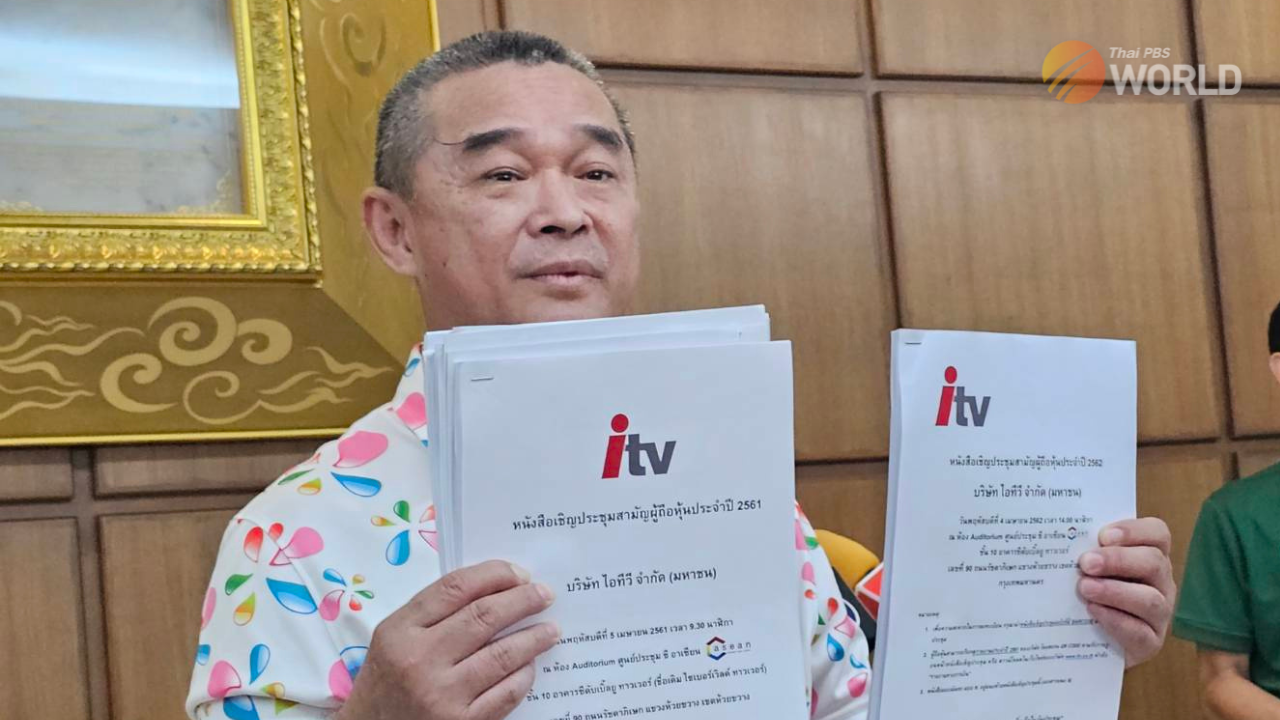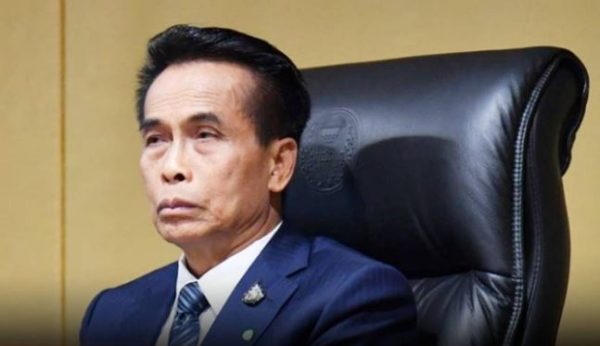Ruangkrai Leekitwattana: The political giant-killer aiming to chop down PM hopeful Pita

Known as “Jack the giant slayer” for his role in bringing down then-prime minister Samak Sundaravej in 2008, serial petitioner Ruangkrai Leekitwattana has now set his sights on Pita Limjaroenrat.
Ruangkrai has triggered legal challenges that threaten to detonate the Move Forward Party leader’s bid to become Thailand’s next prime minister. Pita and his eight-party coalition say that as head of the election-winning party, the top role is rightfully his.
Ruangkrai asked the Election Commission (EC) last Tuesday to seek a Constitutional Court ruling on Pita’s eligibility to be an MP. His latest move came after the EC rejected his earlier petition to investigate whether Pita’s shareholding in media company iTV Plc violated constitutional rules on running for political office.
The agency dismissed his complaint on grounds that it was filed just four days before the election when the legal deadline had already passed. But the EC did go ahead with an investigation to determine if Pita had contested the poll despite being aware that he was not qualified to run. This would be a violation of electoral law, penalized by a jail term of one to 10 years, a fine of 20,000 to 200,000 baht, and revocation of electoral rights for 20 years.
Former boss not exempted
Ruangkrai, 61, earned the label “serial petitioner” after years of filing complaints against political and bureaucratic officeholders – including his ex-boss, former auditor general Khunying Jaruvan Maintaka.
His petitions have led to legal and administrative action against many of those accused. But for many observers, including supporters of his targets, he is simply a “political gadfly” or a “pebble in the shoe”. Some accuse of him of conspiring with political powers to bring down their opponents.
Born on August 26, 1961, in the northeastern province of Buriram, Ruangkrai earned his bachelor’s degree in accounting from Ramkhamhaeng University and a master’s degree in the same field from Thammasat University. He is married with two children.
Ruangkrai first made headlines in 2006, when he sued the Revenue Department for “double standards” after it taxed shares he purchased from his father for 10 baht apiece when the market price was 21 baht.
He argued that children of then-prime minister Thaksin Shinawatra were not taxed for a similar stock purchase involving the family’s telecom business Shin Corporation. Public pressure at that time prompted the Revenue Department to return the collected tax to Ruangkrai.
Shortly afterward, Khunying Jaruvan, who was then serving as the auditor general, appointed Ruangkrai as her advisor. He was described by the media as one of Jaruvan’s trusted aides.
However, after Jaruvan retired in 2010, Ruangkrai petitioned the National Anti-Corruption Commission (NACC) to investigate her assets. In September of the following year, the NACC asked the Office of the Attorney General to sue the former auditor general for alleged malfeasance.
Honing his skills
It was in the Auditor General’s Office that Ruangkrai honed his skills in accounting and auditing investigations.
The serial petitioner told a TV talk show recently that he worked at the Auditor General’s Office for five years as an investigator, scrutinizing projects by state agencies to make sure they were in line with the law and free from irregularities.
In April 2006, Ruangkrai contested for a senatorial seat but failed to get elected. He was appointed a senator in March 2008, following the military coup of September 2006. He was among the “Group of 40” Senate faction that opposed the Shinawatra family and its proxy political parties.
Ruangkrai filed a complaint against Samak, who became prime minister as the leader of Thaksin’s proxy People’s Power Party, which won the 2007 general election. He accused the PM of a conflict of interest over his private role hosting a cooking show.
His complaint against Samak led to a Constitutional Court order in September 2008 for the then-PM to vacate his premiership for violating a constitutional clause that prohibited any government minister from serving as a company employee.
Switching sides
However, after the 2010 military crackdown on red-shirt protesters, Ruangkrai turned from Thaksin’s foe to his friend. He was spotted at several seminars and rallies organized by Thaksin’s red-shirt supporters. He became a Pheu Thai party-list candidate for the 2014 election, the results of which were eventually nullified by a court order.
Ruangkrai later joined Pheu Thai after being approached for help with legal matters and petition filings. He explained that the party harbored no ill-feeling towards him over his role in ousting Samak, while the rival Democrat Party may distrust him for his appearances at red-shirt rallies.
In 2018, he quit Pheu Thai to join its offshoot Thai Raksa Chart. But after the new party was dissolved just before the 2019 election, he returned to Pheu Thai.
Ruangkrai was among Pheu Thai’s appointees to the committee that vetted the 2021 budget bill. But he was abruptly removed after a power shift in the party, which prompted him to quit Pheu Thai.
Shortly afterward, the ruling Palang Pracharath Party appointed Ruangkrai to the committee vetting the 2022 budget bill. Then, in mid-2022, he officially joined Palang Pracharath.
By Thai PBS World’s Political Desk






